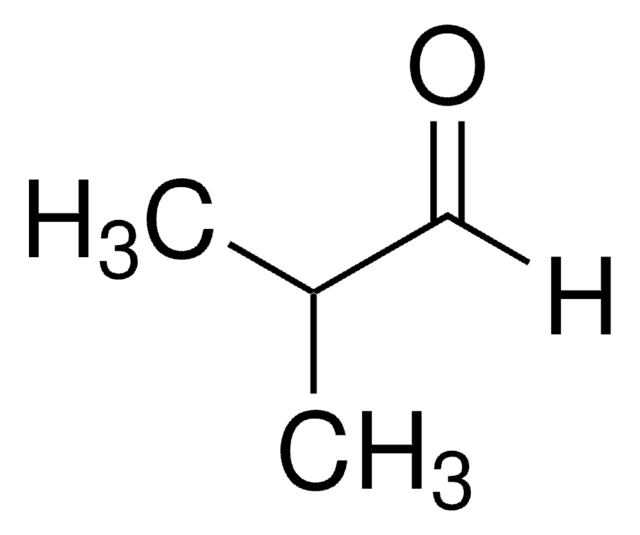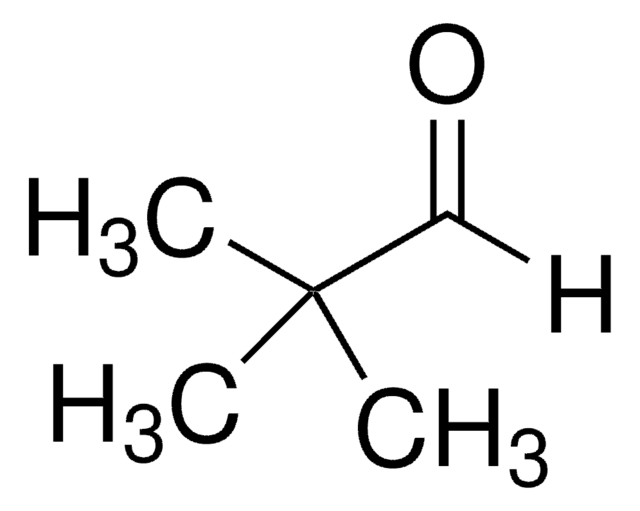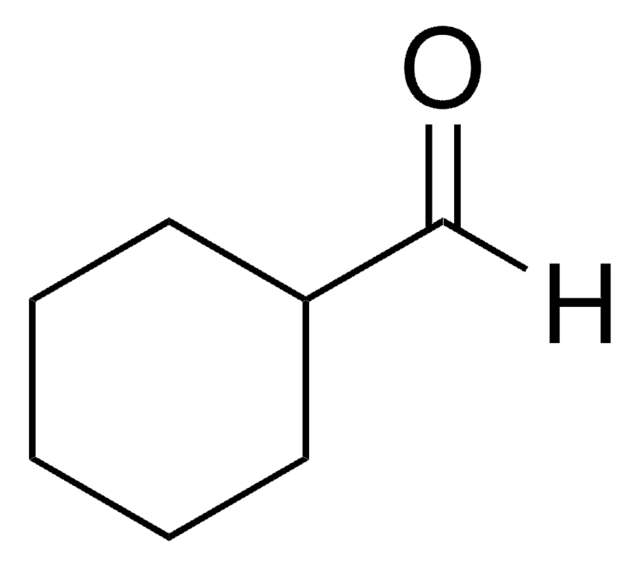538205
Isobutyraldehyde
dry, 98%
Synonym(s):
2-Methylpropanal, 2-Methylpropionaldehyde
About This Item
Recommended Products
vapor density
2.5 (vs air)
Quality Level
vapor pressure
66 mmHg ( 4.4 °C)
Assay
98%
autoignition temp.
384 °F
expl. lim.
10 %, 25 °F
2 %, 32 °F
refractive index
n20/D 1.374 (lit.)
bp
63 °C (lit.)
mp
−65 °C (lit.)
solubility
60 g/L at 25 °C
density
0.79 g/mL at 25 °C (lit.)
functional group
aldehyde
storage temp.
2-8°C
SMILES string
[H]C(=O)C(C)C
InChI
1S/C4H8O/c1-4(2)3-5/h3-4H,1-2H3
InChI key
AMIMRNSIRUDHCM-UHFFFAOYSA-N
Looking for similar products? Visit Product Comparison Guide
General description
Application
- N-cyclohrxyl-α-dimethylaminoisovalerarnide
- N′-cyclohexyl-N,N-dimethyl-α-dimethylaminoisovaleramidine
- α-acetoxy-N-cyclohexylisovaleramide
- acetic anhydride
- N-cyclohexyl-a-formyloxyisovaleramide
- cyclic carbonates
- hydroxypivaldehyde, which is useful for the preparation of neopentyl glycol (NPG)
Signal Word
Danger
Hazard Statements
Precautionary Statements
Hazard Classifications
Eye Irrit. 2 - Flam. Liq. 2
Storage Class Code
3 - Flammable liquids
WGK
WGK 1
Flash Point(F)
-11.2 °F - closed cup
Flash Point(C)
-24 °C - closed cup
Personal Protective Equipment
Regulatory Listings
Regulatory Listings are mainly provided for chemical products. Only limited information can be provided here for non-chemical products. No entry means none of the components are listed. It is the user’s obligation to ensure the safe and legal use of the product.
FSL
Group 4: Flammable liquids
Type 1 petroleums
Hazardous rank II
Water insoluble liquid
ISHL Indicated Name
Substances Subject to be Indicated Names
ISHL Notified Names
Substances Subject to be Notified Names
JAN Code
538205-BULK:
538205-4L:
538205-1L:
538205-2L:
538205-VAR:
538205-100ML:
Choose from one of the most recent versions:
Already Own This Product?
Find documentation for the products that you have recently purchased in the Document Library.
Our team of scientists has experience in all areas of research including Life Science, Material Science, Chemical Synthesis, Chromatography, Analytical and many others.
Contact Technical Service







